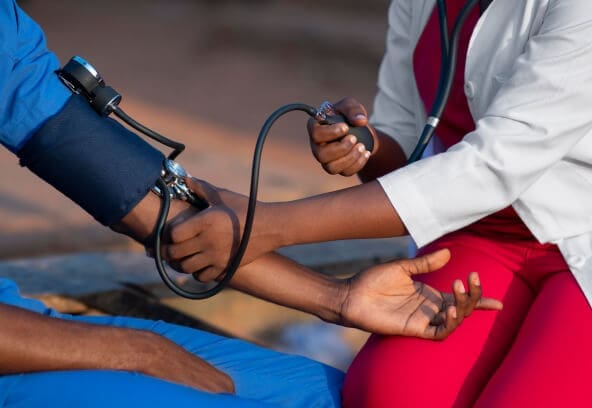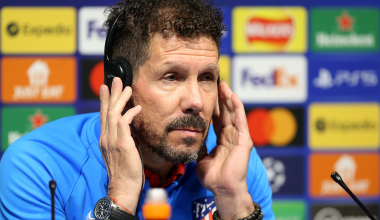Community health workers are vital to Nigeria’s healthcare system. They are often the first people that many, especially in rural areas, turn to for essential health services and education. Hence, this article on BSc community health salary in Nigeria.
While money matters in any job, many community health workers find their work incredibly rewarding. Helping improve community health, preventing disease outbreaks, and contributing to the well-being of society gives them a purpose that goes beyond just earning a paycheck.
If you’re thinking about a career in this field or are just curious about the BSc community health salary in Nigeria, this article is for you. We’ll look at what you can expect to earn with different levels of education; BSc, MSc, and PhD and discuss what factors can affect your salary as a community health worker in Nigeria.
Table of contents
- What is Community Health?
- What does a Community Health Worker do?
- What Skills should a Community Health Worker Possess?
- How much Money does a Person Working as Community Health Worker make in Nigeria?
- Salary Structure by Education Level
- Junior Community Health Extension Worker (JCHEW)
- What does a Junior Community Health Extension Worker (JCHEW) do?
- Junior Community Health Extension Worker Salary in Nigeria
- How to become a Community Health Worker
- What is the Job Outlook for Community Health Workers?
- Frequently Asked Questions on BSc community Health Salary in Nigeria
- Conclusion
- References
- Recommendations
What is Community Health?
Community health is all about using education and prevention to help people in a community stay healthy. It tackles issues like getting access to nutritious food, preventing diseases, and raising awareness about health risks. The goal is to solve social, economic, and environmental health problems.
Experts in community health look at how things like attitudes, culture, income, and behaviors affect people’s health. They work together to research problems, teach people, and make sure everyone has access to health resources. These professionals often interact with people from all walks of life to ensure everyone in the community gets the help they need.
What does a Community Health Worker do?
Community health workers (CHWs) in Nigeria wear many hats and can be found in hospitals, clinics, and non-governmental organizations (NGOs), all working hard to make public health better. Their jobs include:
- Teaching people about health issues
- Running outreach programs
- Giving basic medical care
- Helping with maternal and child health
- Encouraging overall health and wellness in the community
Read: Which Course is Best for Art Students in Nigeria? Top 20 Art Courses
What Skills should a Community Health Worker Possess?
As a community health worker, there are certain useful skills that will help you make a real difference and stand out in your profession. Here are some key ones:
- Care Coordination: This skill help you with managing people’s their health care across different providers, ensuring smooth communication between doctors and other health workers.
- Disability Management: This skill is crucial for helping community members with disabilities take care of themselves and return to work safely. You’ll learn how to coordinate care and share information between patients, their employers, and legal bodies.
- Client Education: A big part of your job will be teaching people about health. You should learn how to listen to their concerns and provide useful resources about their conditions, where to get help, and available financial aid.
- Advocacy: Many community health workers push for changes in the health system. You should learn persuasive writing and other skills to effectively advocate for better health policies and services.
- Knowledge of Health and Community Systems: You should have a deep understanding of how health care works and how to use this knowledge to improve health outcomes for individuals and communities.
- Physical Stamina: Staying active and fit helps you keep up with daily tasks and promote physical activity to others.
- Data Analysis: You’ll learn how to collect, store, and analyze data to understand the health needs of your community better.
- Conflict Resolution: Knowing how to handle conflicts is important. Your ability to read body language and understand different community settings will help you resolve issues effectively.
- Relationship-Building: Building strong relationships with community members and health care workers is paramount. You’ll learn to be a team.
How much Money does a Person Working as Community Health Worker make in Nigeria?
When it comes to earning as a Community Health Worker (CHW) in Nigeria, experience plays a major role. The more years you’ve worked, the higher your salary tends to be. Here’s a breakdown of what you can expect to earn based on your experience level:
- Less than 2 Years of Experience: If you’re just starting out with less than two years of experience, you can expect to earn around ₦62,000 per month.
- 2 to 5 Years of Experience: With a bit more experience, between two and five years, your salary increases to about ₦82,000 per month. That’s roughly 32% more than someone with less than two years of experience.
- 5 to 10 Years of Experience: If you’ve been in the field for five to ten years, you can look forward to earning around ₦110,000 per month, which is 34% more than those with two to five years of experience.
- 10 to 15 Years of Experience: For those with a decade or more in the field, salaries jump to about ₦131,000 per month. This is 19% more than what those with five to ten years of experience make.
Salary Structure by Education Level
Basically, getting more education usually means earning a bigger salary. But how much can you make with a higher degree as a Community Health Worker? Let’s break down the salaries based on different educational qualifications according to Salaryexplorer.com.
BSc Community Health Salary in Nigeria
With a Bachelor’s degree, a community health worker can expect the following salary range every month:
- Entry-Level: ₦60,000 – ₦80,000
- Mid-Level (3-5 years of experience): ₦82,000 – ₦120,000
- Senior-Level (5+ years of experience): ₦120,000 – ₦180,000
Also, read: 15 Best International Student Loans For Africans
MSc Community Health Salary in Nigeria
If you’re a Master’s degree holder, it is important to remind you that you may assume specialized role and eventually, a higher pay. That said, below is the salary range of what you should expect monthly:
- Entry-Level: ₦100,000 – ₦150,000
- Mid-Level (3-5 years of experience): ₦150,000 – ₦250,000
- Senior-Level (5+ years of experience): ₦250,000 – ₦400,000
PhD Holder Community Health Salary in Nigeria
With a PhD, you can aim for top positions in research, teaching at universities, and high-level consulting jobs. See what your monthly salary range looks like at this level.
- Entry-Level: ₦200,000 – ₦300,000
- Mid-Level (3-5 years of experience): ₦300,000 – ₦500,000
- Senior-Level (5+ years of experience): ₦500,000 – ₦800,000
Junior Community Health Extension Worker (JCHEW)
JCHEW workers provide essential primary healthcare services, helping to prevent and control both communicable and non-communicable diseases. They also collaborate with communities to tackle various health issues.
To become a community health worker, you need three ‘O’ level credits in English, Biology, and Mathematics, along with passes in two other subjects from NECO, GCE, or WAEC, all within no more than two sittings.
If you’re thinking about joining JCHEW, it’s important to understand their basic salary structure so you can make a well-informed decision. Keep reading to find out more about JCHEW’s salary and responsibilities.
What does a Junior Community Health Extension Worker (JCHEW) do?
Here’s what a typical day in the life of a JCHEW looks like:
- A JCHEW worker provides basic healthcare services to the community. This includes treating minor illnesses, administering first aid, and caring for children.
- Also, a JCHEW educates people about health issues, family planning, sanitation, and hygiene. They promote healthy lifestyles and work with communities to identify and solve health problems.
Junior Community Health Extension Worker Salary in Nigeria
There are several factors that can affect the income of a junior community health extension worker.These factors include job role, years of experience, where the healthcare facility is located, and the sector.
Here’s a look at what JCHEW workers can earn at different stages in their careers:
| Career Level | Salaries |
|---|---|
| Entry-Level Worker | ₦60,000 to ₦ 75,000 |
| Mid-Level Worker | ₦66,000 or more |
| Senior Level | ₦175,000 or more |
How to become a Community Health Worker
Here’s how you can start and grow your career as a community health worker:
- Finish High School: You need a high school diploma or equivalent to begin your career in community health.
- Get Training: This usually involves about 100 hours of on-the-job training, which can include classroom study and mentoring. With some training, you can start working in certain positions.
- Seek Volunteering Opportunities: The easiest way to get into a circle is by volunteering for outreaches. Look out for community health programs and immerse yourself in the activities. You could also get recommendations.
- Earn a Bachelor’s Degree: A bachelor’s degree in health and wellness or public health will improve your job prospects. These programs include courses in biology, medical terminology, anatomy, physiology, and epidemiology. You could also get a degree in health education to work as a health educator.
- Specialize with a Master’s Degree: If you want to work in a specialized role, like a mental health community worker, you’ll need a master’s degree. Programs often focus on health education, school health, public health, or health promotion.
- Get Certified: Some jobs require the Certified Health Education Specialist (CHES) credential. You can earn this by passing an exam from the National Commission for Health Education Credentialing. For advanced roles, there’s the Master Certified Health Education Specialist (MCHES) credential.
- Keep Your Certification Up-to-Date: To maintain your certification, you need to complete 75 hours of continuing education every five years.
See this: 10 Unique College Admission Essays
What is the Job Outlook for Community Health Workers?
The U.S. Bureau of Labor Statistics (BLS) predicts that jobs for health education specialists and community health workers will grow by 12% from 2021 to 2031. This is faster than the average job growth in the country. The BLS also expects around 16,000 job openings for these roles each year.
Frequently Asked Questions on BSc community Health Salary in Nigeria
Many community health workers also get extra perks like health insurance, help with housing costs, money for transportation, and chances to learn more on the job. These things make their total pay and benefits even better.
Yes, there’s a strong need for community health workers in Nigeria, particularly in rural areas. Their job is crucial for improving public health and making sure everyone has access to essential healthcare services.
As a community health worker, you can boost your career by getting more education like a Master’s or PhD, learning specialized skills, or taking on jobs in management, research, or making policies. Doing these things can help you earn more money and take on bigger roles.
NGOs, international organizations, and private companies usually pay more than government jobs for Community Health Workers. These organizations pay better for specific skills.
Conclusion
If you care about health and helping your community, working as a community health worker in Nigeria might just be it for you.
While it offers a stable job, decent pay, and a chance to really change lives regardless your educational qualification, you can explore other are fulfilling paths in this field. Your commitment to improving health can have a big impact on people, while also giving you opportunities to grow.
References
- Indeed.com – Degree in Community Health: Types, Career Paths and Skills
- Salaryexplorer.com – Community Health Worker Average Salary in Nigeria 2024
- Inquiresalary.com.ng – JCHEW Salary in Nigeria






